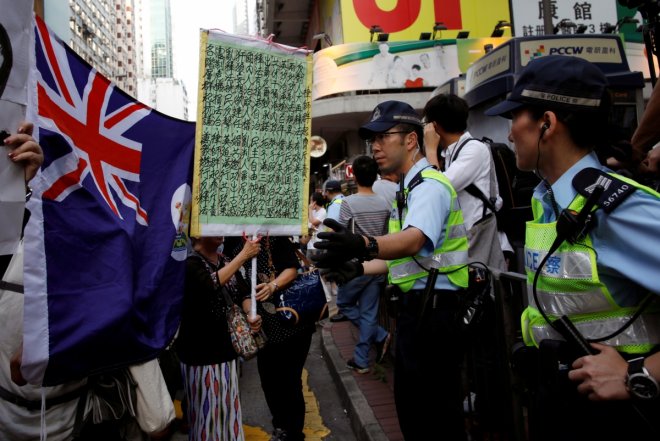
China will not allow anyone to use Hong Kong as a base for subversion against mainland China or to damage its political stability, Beijing's top official in the territory told state television.
Chinese leaders are increasingly concerned about a fledgling independence movement in Hong Kong, which returned to mainland rule in 1997 with a promise of autonomy known as "one country, two systems", and recent protests in the city.
In an interview with state television broadcast late on Sunday, Zhang Xiaoming, the head of China's Liaison Office in Hong Kong, said Beijing will not interfere in matters that purely affect Hong Kong's autonomy.
"As far as Hong Kong is concerned, nobody is permitted do anything in any form that damage the country's sovereignty and security, they are not allowed to challenge the central government's authority or that of Hong Kong's Basic Law, they are not allowed to use Hong Kong for infiltration subversion activities against the mainland to damage its social and political stability," Zhang said.
China's parliament last month staged a rare interpretation of the Basic Law, Hong Kong's mini-constitution, to effectively bar pro-independence city lawmakers from taking office there.
Chinese President Xi Jinping told outgoing Hong Kong Chief Executive Leung Chun-ying last month that China's central government strongly supports efforts by the Hong Kong government to curb moves by some promoting independence for the global financial hub.
The former British colony returned to China under the "one country, two systems" agreement that ensured its freedoms and wide-ranging autonomy, including a separate legal system.
But Communist Party rulers in Beijing have ultimate control, and some Hong Kong people are concerned they are increasingly interfering to head off dissent.









